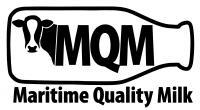
Iodine is an essential nutrient for humans and cows for the prevention of iodine deficiency disorders. Health Canada regulates mineral and vitamin fortification in products for human consumption.
Iodine is labeled as a risk category C nutrient with a narrow margin of safety. Dairy products provide over 50% of dietary iodine intake and recent testing of bulk tank milk (BTM) in Canada found moderately high levels in BTM and store-shelf milk. The level of bulk milk iodine is quite variable between farms with a very small proportion of farms contributing greatly to this average. There is no evidence that current milk iodine levels pose any health risk to adults. Young children, under 8 years old, consuming marginally above Canada’s Food Guide recommended servings for milk could be at risk of consuming excess iodine in their diet. It is prudent to address the issue of iodine loading from this small proportion of farms before the concentration rises to a level of concern.
Iodine levels in milk and dairy products are derived from cattle feed supplements and sanitation products, particularly teat dips and udder washes. There is conflicting evidence on the relative importance of feed versus sanitation product sources and there is evidence that herds in some geographic areas have higher levels than others. Additionally, there is very limited information on how producers access information about milk iodine or other issues of relevance to udder health. Producers who access erroneous information could attempt an iodine reduction strategy that might have serious and long-term negative consequences for udder health. The overall objective of the project is to understand the sources of variability in BTM iodine concentration and to formulate effective extension programs to moderate this variability.
To do MQM will look at :